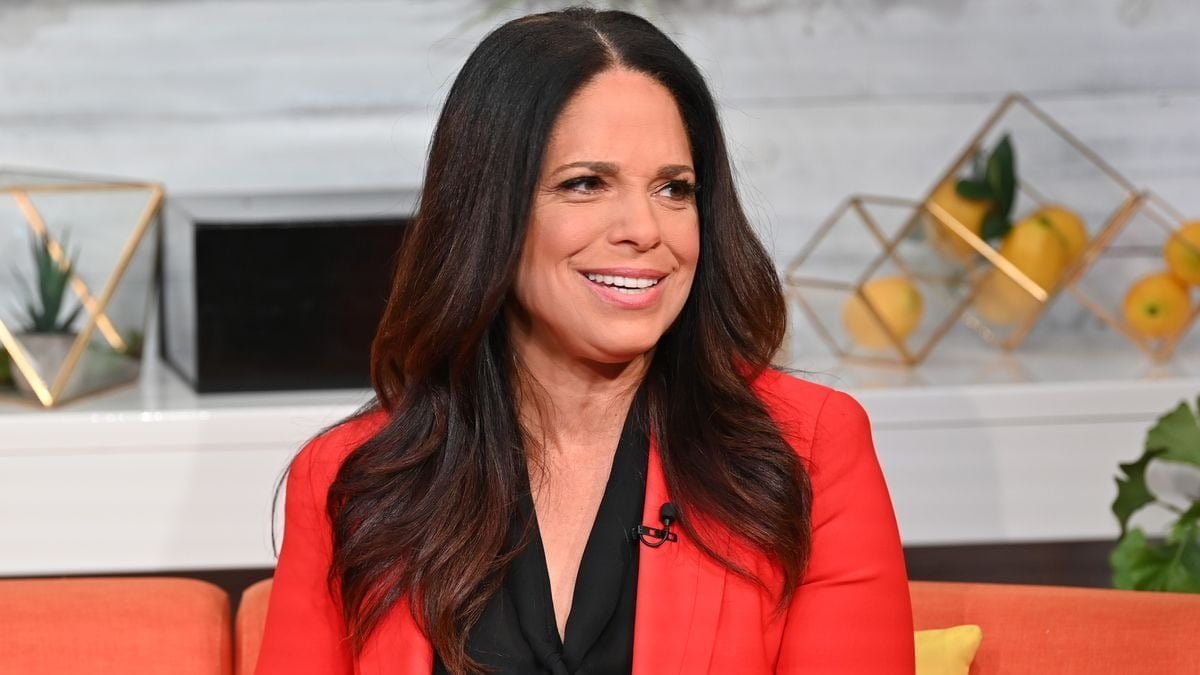In last week’s column, I wrote about Uri Berliner’s Free Press column revealing the liberal bias and DEI “Northstar” agendas that had taken over National Public Radio (NPR).
No sooner had that column been posted than Berliner was suspended. At the time, I posted on social media, “This is not the end of this.” By mid-week, Berliner announced his resignation from NPR.
The howls against new NPR CEO Katherine Maher were fast and furious and not just from conservative circles.
Objectively, most of the s—storm NPR and Maher have faced is overblown. However, the situation was handled poorly, and Maher’s record shows she is as liberal as conservatives claim. Nonetheless, if we listen to her, many of the words she says suggest she understands what would make NPR fairer.
Berliner’s column recalls his attempts to present his findings to NPR’s editorial staff, create incremental internal change, and finally, bring the problems to the attention of outgoing CEO John Lansing.
After years of trying to fix the problems, he published his frank, revealing, honest, and specific missive barely three weeks into the new CEO’s tenure.
Berliner would have been wiser to see if the new CEO was more receptive to his information. He may not have gotten any further with Maher than Lansing, but didn’t the new boss deserve a chance?
Once Berlinger’s bombshell hit, NPR brass immediately put deflection shields up while they hunkered down in their silos. Edith Chapin, NPR’s Executive Editor and Chief Content Officer, rejected Berliner’s essay out of hand, seeing no lack of a range of viewpoints with a newsroom consisting of 87 Democrats and zero Republicans.
A spokesperson for Maher said she supported Chapin and her response to Berliner.
Maher issued a memo to all NPR staff a few days later, which was then made public.
A couple of passages should have given Berliner and NPR critics reason for optimism, especially this one:
“Our mission: serving and engaging audiences that are as diverse as our nation: urban and rural, liberal and conservative, rich and poor, often together in one community.”
Berliner focused on other parts of the memo and resigned. His post on social media explained:
“I am resigning from NPR, a great American institution where I have worked for 25 years. I cannot work in a newsroom where I am disparaged by a new CEO whose divisive views confirm the very problems at NPR I cite in my Free Press essay.”
Berliner’s column and his resignation set off protests against NPR and Maher.
Senators Ted Cruz (R-TX) and Marsha Blackburn (R-TN) are among the politicians calling for eliminating government funding for public broadcasting. In his post announcing his resignation, Berliner added that he did not support defunding NPR.
Christopher Rufo, a Manhattan Institute Senior Fellow, began posting Maher’s past tweets, demonstrating that she is extremely liberal and questioning whether she can help NPR achieve a range of viewpoints.
Those posts include one that called Trump a racist. In another, she justified the damage done during the George Floyd riots, posting: “It’s hard to be mad about protests to prioritizing the private property of a system of oppression found on treating people’s ancestors as private property.”
But it wasn’t just conservatives who wailed on Katherine Maher. Bill Maher (no relation) took shots at her on Real Time, pointing out “that of the 87 people working in editorial positions, there are 87 Democrats. Even if you’re a Democrat, you can’t think this is good.”
Bill Maher called her a “Portlandia character” and pounced on her social media posts. “She says things like ‘I mean, sure, looting is counterproductive. But it’s founded on treating people’s ancestors as private property.’ I mean, c’mon man. A long time ago. She says, ‘I suffer with cis-White mobility privilege.’ I mean, it’s kind of white woman who says she’s Beyoncé’s spirit animal.”
These and other posts clearly show her far-left political ideology fits in with NPR as Berliner described it.
However, a manager’s personal political views do not necessarily guide their business decisions.
A previous NPR CEO proved this. Between 2014-19, Jarl Mohn (long-time radio people will remember him as Lee Masters) was NPR’s CEO. The “Mohn-era” was (in my opinion) the best NPR ever sounded.
NPR stopped sounding like the Saturday Night Live parody “Delicious Dish” and the infamous “Scweddy Balls” episode.
Formatics and cross-promoting were implemented, especially during NPR’s tent-pole programs Morning Edition and All Things Considered. Although Mohn was a known Democratic activist, NPR was rated Center by AllSides during his tenure.
Some conservative commentators have criticized Maher for her appearance at the Carnegie Endowment’s forum: Disinformation, Journalism, and Technology: A Conversation with Katherine Maher.
This discussion took place literally immediately after Berliner’s resignation was announced. Conservative critics who jumped on a few of her statements aren’t necessarily wrong. She continuously left herself an out by repeating that she’s not an editor and that there’s a firewall between editorial and management. Nonetheless, the CEO creates the tone and expectation, as John Lansing did terribly for the past several years.
Marher said a lot of the right things at the Carnegie forum.
She finally addressed the Berliner issue in a way that would have been more productive if she had included it in her initial response.
“I read Uri’s letter,” Maher said. “I never had the chance to meet him personally. I wish that I had had that chance so that we could have talked about what his concerns were.”
Once again, leaving herself wiggle room, she continued, “I don’t have any editorial guidance on the newsroom, but it would have been interesting to hear and be able to think about structurally, what can we do?”
Maher talked about her desire to grow the audience. Berliner and the audience numbers show that NPR has lost listeners – among moderate Democrats and Republicans.
She repeatedly refers to NPR as a “public trust and a public mandate to serve all Americans” and claims to be working to do so: “We have been doing qualitative and quantitative research that reaches into every corner of America. We talk to people from every demographic, every background, every political belief in order to understand what they need out of public media.”
The question is whether Maher intends to create content as well as research that broad swath of people.
“We have to earn your trust every single day. We have to be transparent about the way that we do the work, Maher acknowledged.”
Berliner pointed out numerous specific examples of NPR failing these tests: Russiagate, Adam Schiff, Covid origins and vaccine, Hunter’s laptop, and never an acknowledgment that they got anything wrong. Was 87 Democrats and no Republicans in the newsroom transparent?
Following up on changes she’s made and the response to Berliner’s points, Marher says: “[I] set up a quarterly editorial meeting which brings in our member stations to make sure that we’re covering the right range of issues. That speaks to the wide variety of people in this nation and their beliefs, and their needs, and their interests. And that we’re doing that in a way that feels as though it’s fair and it’s representative, and we’re able to serve all of those audiences, without fear or favor.”
“[We] set up a monthly newsroom meeting where we’re able to take a look at what the coverage has been. Do we have enough balance around certain issues?”
She uses many Wikimedia refrences, where she came from before NPR, examples in the conversation. Given that she’s been at NPR for about a month, it’s fair enough.
Maher’s TED Talk is more focused on her Wikimedia experiences. She makes a couple of statements that she will hopefully live up to at NPR.
First, “When we are forced to defend our biases when forced to go into the data and the citations and really engage, grapple with the intellectual struggle that comes from meeting up against other people’s biases, our horizons can expand.”
Many people at NPR need to expand their horizons.
She cites Wikipedia research: “[When] writers take on the most contentious and difficult topics, they produce some of the best articles on Wikipedia. Many of them are written by people who fundamentally disagree with one another. They found that the more these polarized contributors engaged in conversation, the more balanced and productive their contributions became.
Maybe a year from now, there won’t be 87 Democrats and zero Republicans in NPR’s newsroom.
In both the Carnegie forum and her TED Talk, Maher says humility is the most important quality for a leader.
A little humility would have been helpful in dealing with the Berliner bombshell. Maher will need to be humble about what’s happened at NPR over the past few years. She doesn’t own it, but she has the opportunity to create an NPR that lives up to what she described in the Carnegie Forum.
Ms. Marher, we’ll revisit NPR in a year to check on your progress.
Andy Bloom is president of Andy Bloom Communications. He specializes in media training and political communications. He has programmed legendary stations including WIP, WPHT and WYSP/Philadelphia, KLSX, Los Angeles and WCCO Minneapolis. He was Vice President Programming for Emmis International, Greater Media Inc. and Coleman Research. Andy also served as communications director for Rep. Michael R. Turner, R-Ohio. He can be reached by email at andy@andybloom.com or you can follow him on Twitter @AndyBloomCom.








